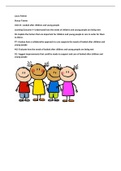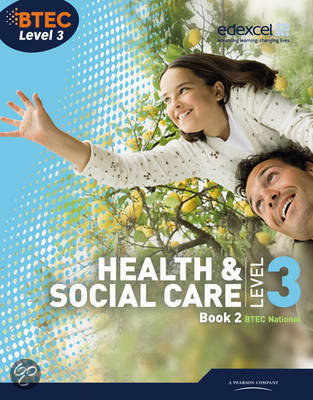Laura Palmer
Stacey Tanner
Unit 21- Looked after children and young people
Learning Outcome 4- Understand how the needs of children and young people are being met
P6- Explain the factors that are important for children and young people in care in order for them
to thrive.
P7- Analyse how a collaborative approach to care supports the needs of looked after children and
young people
M2- Evaluate how the needs of looked after children and young people are being met
D1- Suggest improvements that could be made to support and care of looked after children and
young people
,In this assignment, I will explain the factors that are important for children and young people in care
in order for them to thrive. Next I will analyse how a collaborative approach to care supports the
needs I will evaluate how the needs of looked after children and young people are being met. Finally,
I will suggest improvements that could be made to support and care of looked after children and
young people.
P6- Explain the factors that are important for children and young people in care in order for them
to thrive.
Thrive means to achieve what they want, their own personal goals. Thrive means they are achieving
their maximum or excelling. However, in order to do this children, need to be provided with the
tools to reach their full potential. Thrive means to make strong progress towards their aims. If a child
or young person is thriving, it means they are developing well and meeting goals, or making progress
towards their goals.
Warm, nurturing care
Need support
Warm, nurturing care involves looked after children needing support. If a child has support they are
more likely to be open with their carers about having problems and needing help to resolve those
problems. Children need support from carers, but also from others who work with them, such as
teachers and social workers. By them having support, they are more likely to achieve and reach their
full potential.
Need love
Looked after children need love to thrive. Having love can boost a child’s self-esteem and
confidence. Looked after children need love from their family members, either blood relatives or
foster families. In the future, they also need romantic partners. Often children who are looked after
have a lot of meaningless sexual relationships. By looked after children having love, they are less
likely to go looking for love elsewhere, in which they may end up being exploited or abused.
Shelter
Looked after children need shelter. Looked after children will also need their own space. Children
need shelter to be able to stay warm. It is advised that looked after children are not expected to
share rooms with their siblings. “While it’s not illegal for them to share, it’s recommended that
children over the age of 10 should have their own bedrooms- even if they’re siblings or step-
siblings.” (Sharing a bedroom, n.d.)
Maslow’s hierarchy of needs
Maslow states that there is a hierarchy of needs that must be met in order for individuals to thrive.
The hierarchy of needs include physiological needs that require to be met. This means that children
need to be given sufficient food and drink, as well as sleep. The needs were categorised as five levels
of lower to higher order of needs. Individuals must satisfy lower order needs before they can satisfy
higher order needs.
, Children must also be safe and protected from violence and harm. This therefore provides them with
“emotional stability and wellbeing”. (A guide to the 5 levels of Maslow's Hierarchy of Needs, 2020)
The first of Maslow’s hierarchy is physiological needs. These were put at the base of the pyramid as
they are essential for survival. Physiological needs include food, water, air, homeostasis, sleep, and
sex. These are seen as essential for survival. The second level is safety needs. This includes
protection from danger, ensuring they have good wellbeing. The safety needs also include physical
safety and economic safety. Physical safety needs may include being protected from harmful events,
such as war, conflict, violence, and natural disasters. Physical safety may also mean being able to
maintain health insurance and getting regular health check-ups from a practitioner. Economic safety
needs could include maintaining a job, paying bills, adding money to a savings account, as well as
purchasing life insurance. Love and belonging (social needs) have a focus on belonginess, or a need
to form and maintain social connections that last. Children need a sense of love and belonging to
flourish. They need meaningful sexual intimacy in the future, instead of meaningless sexual
relationships. Female lac’s need to realise that they have plenty of time to look after a baby in the
future once they have a stable relationship and career. Children need self-esteem, and the need to
feel confident in themselves, and their abilities. Children often get confidence from being praised.
Self-esteem will be boosted by their achievements, even if they are only small achievements to
begin with. Children that are also given respect, will have higher self-esteem than those that are not
given respect. The final suggestion from Maslow was self-actualisation. This includes children having
creativity. If a child is creative they are better problem solvers than children who are not creative, as
they will have to work out ways of correctly doing things.
Warmth
In order for a child to be healthy and well they need warmth. If children do not have warmth they
could be more prone to catching illnesses. Experts state that cold weather forces people to be in
enclosed spaces longer and increases the risk of infection. Furthermore, experts believe that viruses
tend to live longer in colder temperatures and lower humidity. (Pratt, 2019)





